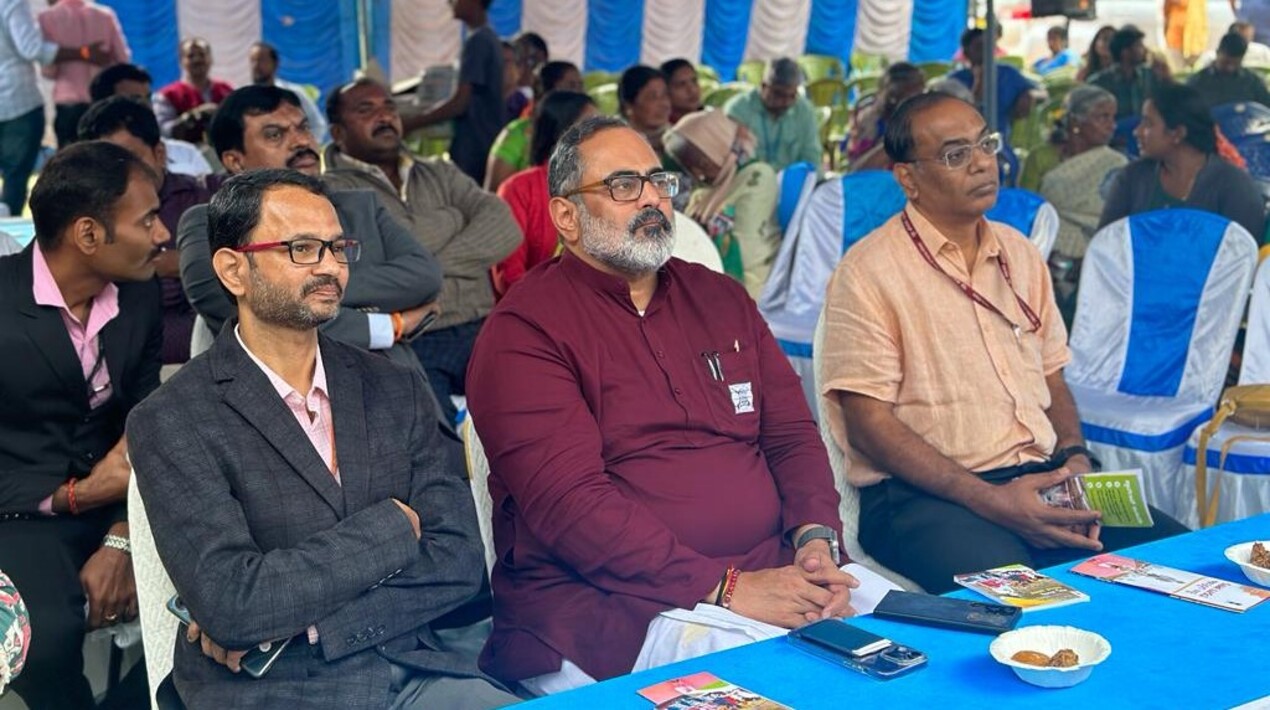
|
Getting your Trinity Audio player ready...
|
Rajeev Chandrasekhar, the Union Minister of State for Electronics and Information and Technology (MeitY), has highlighted the transformative potential of artificial intelligence in driving India’s digital economy and spurring growth in healthcare, agriculture, and governance. During a recent fireside chat, he stressed AI’s positive impact on startups, envisioning expanded opportunities and significant contributions to India’s overall development.
Chandrasekhar said that to support the AI ecosystem, a comprehensive framework has been put together to address AI compute capacity. The government will allocate financial resources for constructing foundational models, large language models (LLMs), and various use cases. Similar to the semiconductor model, the government will fund startups as well.
“Just like the semiconductor model and framework we will be funding and supporting startups leveraging AI,” Chandrasekhar confirmed.
He noted that there is a steadfast commitment to establishing an academic, industry, and startup research ecosystem, which the government refers to as the Innovation and Research Centre. Moreover, academic institutions must prioritise nurturing talent tailored for absorption by the evolving AI ecosystem in the years ahead.
“There are many adjacent areas as well, including AI chips, where we will have an intersection between the Semiconductor Programme and the India AI Mission,” Chandrasekhar said.
AI compute will be divided into two segments: one spearheaded by the private sector, mirroring the semiconductor ecosystem’s design with incentivised investments. The other segment involves domestically developed public sector capacity for AI emerging from the Centre for Development of Advanced Computing (C-DAC), which will be available to the Indian ecosystem.
Chandrasekhar spoke about the challenge of the chip shortage and expects it to be resolved relatively quickly as India is redirecting its focus towards developing AI talent, anticipating a growing ecosystem in the future. “The chip shortage is a problem that will go away the fastest. There are challenges like talent; this is an ecosystem that will need top-notch talent. We need postdocs, PhDs, and master’s graduates to emerge. What we need to do is for our academic institutions to focus on the kind of talent that this ecosystem will absorb in the coming years,” he explained.
Meanwhile, he said that the international community should focus on creating a global framework. Due to the ubiquitous nature of the internet, the majority of cybercrimes (80-90%) are extra-jurisdictional. The perpetrator may be in one jurisdiction, the victim in another, and the crimes in a third.
A global approach involves establishing fundamental principles, compiling a list of current harms and criminal activities, and continually expanding the list as new malicious models, biased algorithms, and bigoted models emerge.
Chandrasekhar cited deepfakes as a prominent example, highlighting how misinformation and blatantly false information propagated by social media pose significant threats, especially in democratic nations. This dissemination of false narratives contributes to divisions, incitement, and the spread of fake information. This becomes even more concerning when fueled by AI.
Furthermore, Chandrasekhar reflected on the recently concluded Global Partnership on Artificial Intelligence, where 29 member nations deliberated on overarching principles and frameworks. The significant accomplishment of GPAI in New Delhi this year lies in its affirmation that AI should be inclusive, avoiding a model where only a select few countries have it. “We need a global framework urgently because, in the next 6-9 months, AI will take shape and evolve in a way that we may not anticipate or fully understand. Therefore, we need to establish this framework quickly, with a granular set of principles and rules that all countries can follow.”
















